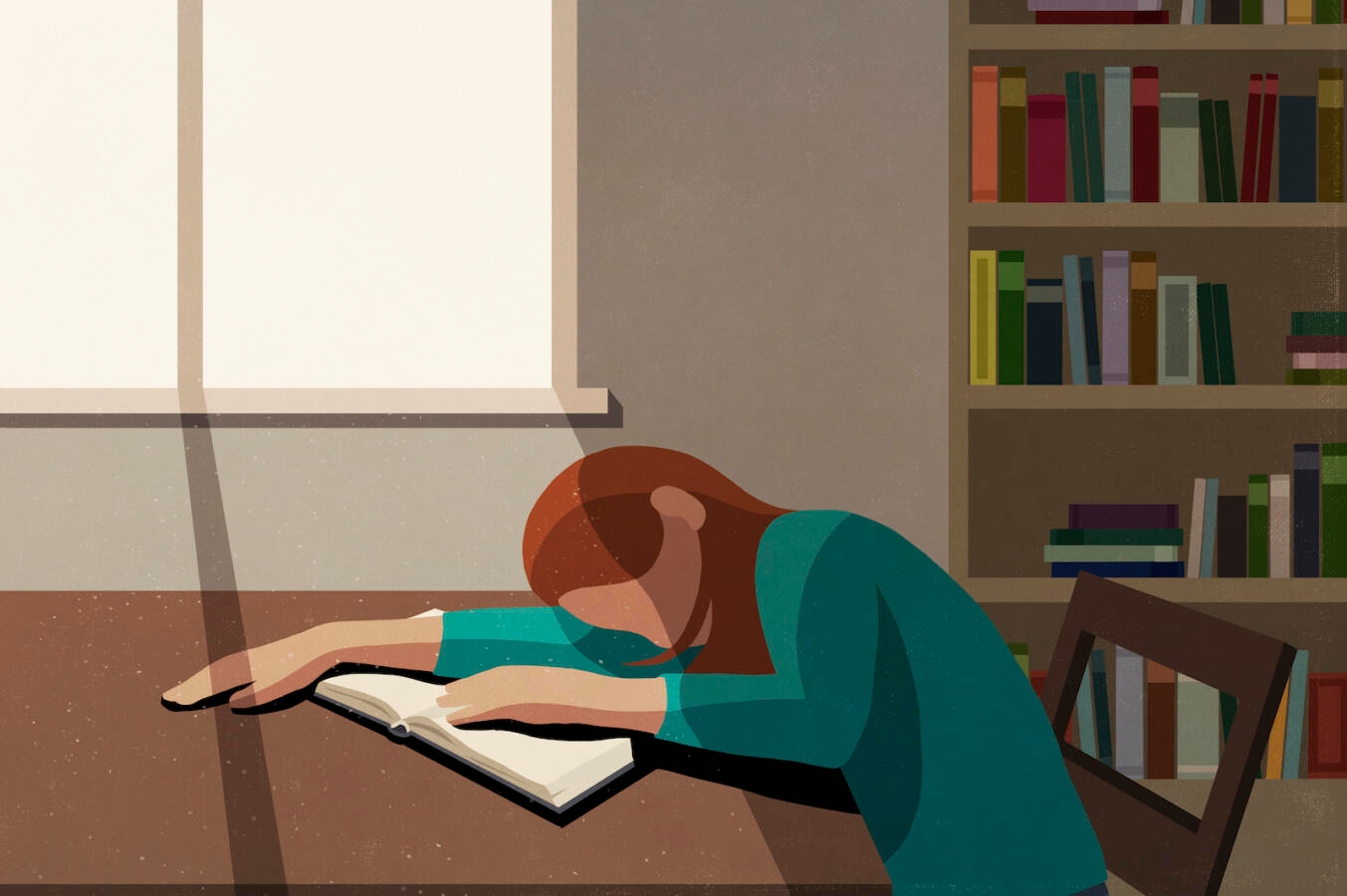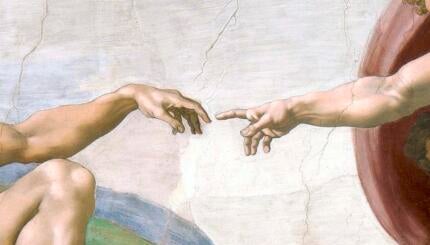The holiday of Shavuot, celebrated this coming week, is understood by Jewish tradition to be the time when God gave the Israelites the Torah at Mount Sinai. It is traditionally celebrated with dairy foods and intensive Torah study, with some staying up all night to learn (a practice likely fueled by the advent of coffee in the 16th century). These all-night study sessions, known as Tikkun Leil Shavuot, are held by Jewish communities of different denominations and geographies and are the only widely observed Jewish ritual involving staying up all night.
Though the custom is widespread, there are few classical sources to support it. So why do we do it?
On its face, the connection is obvious. Shavuot celebrates receiving the Torah, so of course we would honor Shavuot with abundant Torah study. But upon reflection, this reason seems less than convincing. How high is the quality of Torah study in the middle of the night? As the hours tick by, is anyone even paying attention to the teacher? Many people load up on sugar and caffeine, perhaps ill-advisedly, just to get through it. This wouldn’t seem like the best way to pay tribute to Torah.
A more common explanation is that Tikkun Leil Shavuot is precisely that — a tikkun (literally “rectification”) for what went wrong on that original Shavuot at Sinai. The Israelites, according to this theory, slept in on the day they were meant to receive the Torah. In a sort of penance for that failing, we make sure not to miss Shavuot morning by pulling an all-nighter the night before.
With your help, My Jewish Learning can provide endless opportunities for learning, connection and discovery.
But this seems potentially counterproductive. If you’re worried about sleeping in and missing a morning meeting, staying up all night doesn’t quite do the trick. It’s overkill, and may actually undermine your goal. You might manage to be physically where you need to be, but at the cost of any sort of mental presence. What is the value of being present for the giving of the Torah if you’re incapacitated from sleep deprivation?
I would like to suggest an alternate explanation, one focused less on learning and preparedness and more on the experience of receiving the Torah. The goal of Shavuot night is not Torah learning — one can study Torah any day of the year. The goal is to experience something of the radical encounter with God at Sinai.
In the book of Exodus, we find this description of the what transpired as God descended on the mountain:
And the entire people saw the thunder and lightning and the sound of the shofar and the mountain in smoke. The nation saw, they trembled with fear, and they stayed at a distance. They said to Moses, “Speak to us yourself and we will listen. But do not have God speak to us or we will die.”
In the Torah’s telling, the encounter with God was an immersive experience. As if attending a concert with overwhelming audiovisual components, the people are at first entranced and then overwhelmed by what they’re experiencing, backtracking in fear. They are so overpowered they are unable to distinguish between the senses — hence they “saw” the “sound of the shofar.” Overawed by all of this, they beg off, asking to have Moses serve as an intermediary rather than encounter God directly again.
This should not be surprising — it makes sense that an encounter with God should be overwhelming, an experience that scrambles the senses and shifts one’s consciousness. And that’s what we’re looking for on Shavuot. Tikkun Leil Shavuot isn’t primarily an opportunity to learn, nor a chance to fix some millennia-old mishap. It is meant precisely to simulate that total immersive experience.
We do that by occupying ourselves entirely with Torah — and nothing else (OK, maybe some cheesecake too). We learn until it hurts, going at it until we just can’t anymore. Depriving ourselves of sleep brings our bodies into the experience and inevitably effects a shift in consciousness. Taken together, this practice creates an intense experience, an all-encompassing engagement with God and Torah — just as the Israelites experienced at Mount Sinai.
Yes, you might have a headache in the morning, but some hangovers are worth it.
This article initially appeared in My Jewish Learning’s Shabbat newsletter Recharge on May 20, 2023. To sign up to receive Recharge each week in your inbox, click here.



